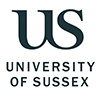You can work through the pages in this Stage at your own pace, taking a break whenever you need to. It is not a good idea to try and complete a whole Stage in one go, however, so always follow the advice to Take A Break half way through.
Time to complete assessments = 2 hours
Now that you are clear about what you are expected to write about, and have some ideas about what you aim to include in your essay, you are ready to begin researching to find out what other academics say about it.
Remember, a discursive piece of writing must begin with a debatable thesis or claim. In other words, the thesis must be something that people could reasonably have differing opinions on. If your thesis is something that is generally agreed upon or accepted as fact then there is no reason to try to persuade people. You may already have an idea about the ‘position’ you will take (or your argument), but if you don’t yet this should become clearer to you as you read.
|
Sue: It sounds really interesting that take that you've got on this essay. Talk to me a little bit about the research process, about trying to find evidence to support this argument that you wanted to make.
Adam: Yeah. So it did involve going through a lot of books unfortunately! But it was for me making sure that I had parts that not only specifically linked to the argument that I had, but also tying into context, to kind of build up that argument as well. So not only did I need to look at sort of culture and arts in Britain in the 1960s, but I also had to make sure I was looking at experiences with people in the Cold War, what was happening politically within the Cold War as well, to really kind of feed into to my overall argument. Sue: And link that to the film at the same time? Adam: Yeah. Sue: So did that feel like quite a big chunk of the process? Adam: It did. But it also felt like the most beneficial, because I was dealing directly with people that had researched this and people that were, sort of knew about the subject. So I was reading and finding out a lot more as I went along, which really helped me to flesh out my ideas a lot as well. Sue: That idea of building on the work that's gone before you is an exciting one, isn't it? Adam: Absolutely! |
Watch the interview with Adam, one of our former Foundation Year students, who worked through the AWG and is reflecting on the process of looking for and finding supporting evidence for the argument he was making in his assessed essay. As you listen, notice how he was able to ‘join the conversation’ in his subject area by engaging with other academics.
Access the pdf transcript here.
Adam Cannell
Now studying BA Filmmaking at the University of Sussex

• Developing strong thesis statements
• Developing an argument
In the process of researching and writing a discursive essay you will need to draw on the work of other academics to support your argument. This 'standing on the shoulders of giants’ (Sir Isaac Newton) will help you support your view in a compelling way. Acknowledging the work of others is an essential part of the process, and allows you to maintain academic integrity. You will learn how to reference your sources later in this Guide.
University of Sussex has a set of universally agreed academic integrity values which are: honesty, trust, fairness, respect, and responsibility. By adhering to these values, which should apply to all aspects of your life, not just academic study, the standards of the University and of the qualifications awarded are maintained for all students. It is the responsibility of all students to ensure these values are maintained, and it is important to be aware of these ideas and values during the research process.
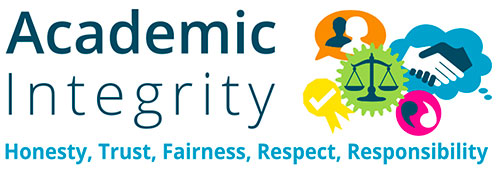
Remember, quizzes in this Guide are designed to help you recall and process information.
The scores are not recorded and do not influence your grades for the Academic Development module.
|
Sue: So um, also taking you back, if you can remember, to the idea that you would need to draw on the work of other scholars; that you would need to draw on other sources to support the points you were trying to make in your essay. Was that a novel idea? Was it something you'd expected to be asked to do?
James: It was expected, but the method was unexpected. Because at A levels I'd used sources, but the concept of like engaging with the sources was novel for me. Sue: Yeah so it was ‘how do you actually use a source?’ rather than ‘can I just randomly find one?’ James: Yeah. Sue: And from your experience now, from having done this multiple times, does that/is that still quite a difficult thing to do? James: No. No I’m much more able to think about the quotes and the sources and it/the skills set rolls backwards into research as well. So I'll find a source on the Library Search and start reading it, and I'll be able to sort of pick up quite quickly whether or not I'm going to be able to use it. Not because it's necessarily a bad source, but the way that I personally write, and the essay that I'm creating, sometimes they just don't quite fit together like they should do. Sue: And that whole using Library Search, how familiar do you feel now? How comfortable are you with that? James: Certainly more comfortable than when I started. It's a very… It's not the most user-friendly search engine! But I think having the opportunity to be sort of walked through it is really helpful and I think to some extent everybody finds their own style in using it and extracting use out of it. But yeah, I think for me certainly that all started with the Foundation year and the sort of the explicit time that was set aside for us to get to know it and use it and explore the different settings on it. |
Watch the interview with James, one of our former Foundation Year students, who worked through the AWG and is reflecting on both finding and using sources to support the argument he aims to make in an assessed essay.
As you listen, notice the way he talks about the way these skills have developed during his time at Sussex.
Access the pdf transcript here.
James Bartoli-Edwards
Now studying BA (Hons) Philosophy, Politics and Economics at University of Sussex
Library Search is an online discovery tool used in the University of Sussex library. It is an extremely powerful resource which provides a single interface for finding all the information you need - books, e-books, journals, articles, digital media and other types of resources. Library Search will search everything in the Library: all of the books and journals, plus the content available through the Library’s databases and a huge index of article-level content, from e-journals, conferences, newspapers and more.
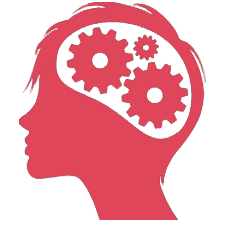
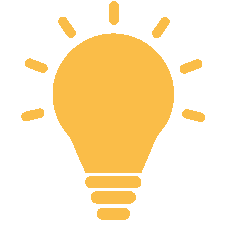
Once you have identified your keywords and alternative terms, you need to think about how to put them together. Follow the links to the University of Sussex Skills Hub to find out about using Boolean connectors.
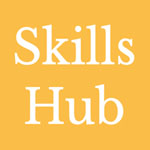
And watch a short video (1.5 mins) about Boolean connectors here
Remember, quizzes in this Guide are designed to help you recall and process information.
The scores are not recorded and do not influence your grades for the Academic Development module.
Question 1: What information will you need from the following Library Search record to find the book in the Library?
Question 2: Which of the following facts about EBL ebooks are true?
Question 3: What is the title of the journal in this reference? Kulezzic-Wilson, D. (2009) ‘The Music of Film Science’, Music and the Moving Image, 2(3), pp.1-10, JSTOR [Online]. Available at: www.jstor.org (Accessed: 02 Sept 2014).
|
Question 1: Which search statement would return more results in Library Search?
Question 2: On Library Search, which symbol would you use at the end of the root word to perform a truncation search?
Question 3: Which set of keywords would be most effective for someone who wanted to find resources for the following question: “What effect does sleep have on the memory and learning of teenagers?”
|
It is very useful to add all the sources of information you find to a table. This enables you to see them at a glance, and makes it easier to select the ones you intend to use.

‘Compare and contrast what H G Wells’ ‘The Island of Dr Moreau’ and the Eugenics Society pamphlet from the early 1920s tell us about ideas on genetics and race in the early twentieth century.’
The texts have been gathered via the online discovery tool ‘Library Search,’ the Scopus database (found in many of the Subject Guides), Box of Broadcasts or via an internet search. Look at the table carefully and notice why some sources are suitable and others not suitable to help inform this research process. Follow the instructions at the top of the table. The quiz below will help you.
Remember, quizzes in this Guide are designed to help you recall and process information.
The scores are not recorded and do not influence your grades for the Academic Development module.
Question 1: Why might Wald and Clayton’s source be useful for the essay?
Question 2: What type of source is this? Rimke, Heidi, and Hunt, Alan. “From sinners to degenerates: The medicalization of mortality in the 19th century.” History of the Human Sciences 15, 1 (2002) 59-88.
Question 3: Is Endersby’s book ‘A guinea pig’s history of biology’ worth reading in depth for the essay?
Question 4: Is the book by Turney published in 1998 still relevant?
Question 5: Why was the source by Porter rejected?
Question 6: Why has the writer written ‘maybe’ in the ‘suitable for inclusion?’ column?
Question 7: What is Wikipedia useful for?
|
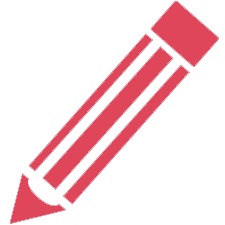
Working with your subject-specific essay title that your AD tutor has given you find at least 5 sources using ‘Library Search’, one (or more) of the databases on your own Subject Guide and/or Box of Broadcasts to build a search table for your essay. Remember to use a range of library search skills to narrow your search so that you find the most appropriate texts.
Once you have identified 5 sources that you think will be useful:• Skim read the five sources you have found (a book, an academic journal article, a chapter in a book etc) and take notes as you read. Your purpose for reading at this stage is to evaluate if the source is relevant to your own essay title. After you have done this write a short commentary in the table you have created showing the relevance of this source to the essay question.
Recording and Analysing Your Sources
| Bibliographic Details of Source | Relevance/ Appropriateness to essay question |
Once you have completed your table in a Word document save it to your computer. (At the end of this Stage you will be asked to transfer your answer to a template, combining all of your assessments into one document that will then be uploaded to a central assessment point. You'll be given more information at the end of the Stage).
All Sussex students have 1 Terabyte (1TB) of secure file storage with OneDrive. Find out How to install OneDrive on your computer or device here.
An Academic Development tutor will be able to offer you one-to-one support and advice.

• What I realised about academic writing was
• What I found most difficult was…
• I think the strength of this submission is…
• In order to improve future pieces of academic writing I will attempt to…
Here is a reminder of all of the assessed tasks that you should already have completed as part of the process of preparing the subject-specific essay that your Academic Development tutor has given you.

2) Create a mind-map that shows how you intend to decode the essay question to support your continued research.
3) Produce a table with at least 5 sources with annotations showing the relevance of the sources to help inform the development of your essay. These sources will be written using the referencing system recommended by your tutor for use in your decipline.
4) Write a short reflection on what you have learned from completing this stage of the AWG.
Go to the Week 5 page of your Canvas site and find the AWG Stage 1 Template. Transfer all of your answers to the correct places.
Also make sure to add your name and student number to the front of the sheet. Once you have written all of your answers onto this template, you will need to upload your work to the ‘Assignments’ page in Canvas.
Notes on Submissions
You are responsible for submitting your work on time and will receive a penalty if you do not. Work submitted more than 7 days late will not be marked. This will have an impact on the final grade for your assessed portfolio. Please note that you are required to submit to the published submission point, and we cannot accept submissions by email or by hand. Your AD tutor will show you where to submit your work on your Academic Development Canvas site.
| Stage 1 Part 1 | Now you have completed the second part of Stage 1 move on to Stage 2 Part 1 |
Stage 2 Part 1 |
Home |
Glossary |
About us |
